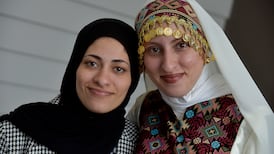Parents will on Monday be invited to vote for their preferred patron bodies to run 12 new primary schools which will be established next year in areas of rapid population growth.
The schools will be based most in commuter belt areas of Dublin, Kildare, Meath, Wicklow and Cork.
Patron bodies are responsible for the ethos and oversight of schools and are responsible for financial and property issues. Most new patron bodies are non-denominational or multidenominational in nature to offer an alternative to the Catholic Church, which has control over some 90 per cent of schools at primary level.
Parents whose children who will be starting school in the next five years will be entitled to vote using the Department of Education's new online patronage process system (patronage.education.gov.ie). The process will run until January 15th.
In Dublin, seven new primary schools will serve Booterstown/Blackrock; Goatstown/Stillorgan/ Dún Laoghaire-Rathdown; Dublin 6/Dublin 6W and Clonskeagh; Donaghmede/Howth/Dublin 13; Killester/Raheny/Clontarf; Swords north; and Swords south.
There will also be new two new primary schools in Co Kildare (Leixlip and Maynooth), Co Meath (Dunshaughlin), Wicklow (Kilcoole/Newtownmountkennedy) and Cork (Glasheen/Cork city/Pouladuff).
These 12 schools are among 42 to be established over the next four years.
Patronage contested
A number of patron bodies have signalled they will contest the patronage in all or most areas.
They include Educate Together, Education and Training Boards, An Foras Patrúnachta – which runs most gaelscoileanna) and a new patron body focused on inclusion, Scoil Sinéad.
Minister for Education Joe McHugh said that while Ireland was fortunate to have a growing population, growth was putting pressure on its public services.
“If we are to have a world-class education and training system we must ensure that we adequately prepare for this future need by planning necessary modern school facilities now,” he said.
Mr McHugh said the planned new schools were decided following an examination of areas of population growth. The four-year timescale for the completion of the 42 schools would enable increased lead-in times for planning and delivery, he said.
The department has appointed a project manager to assist in the procurement of interim school accommodation for the schools which are due to open in September 2019.
It says potential interim accommodation solution options have been identified for the majority of schools.
The patronage process for new schools is overseen by the independent New Schools Establishment Group. This group was set up in 2011 to advise the Minister for Education on the patronage of new schools.
While it was introduced in an effort to make the process more transparent, the main management body for Irish-speaking schools says it is considering legal action on the basis that parents are being “discriminated” against in the process for giving out patronage for new schools.
It says the “first past the post” system is biased against those who want to educate their children through Irish.
Irish-medium schools account for 4.5 per cent of primary schools in the State, though research by the ESRI indicates the level of demand is about 23 per cent.
An Foras Pátrúnachta said the department had not yet followed through on a pledge to revise the system to give additional regard to parental preference for Irish-medium education.
New schools: patronage votes get under way
Booterstown/Blackrock
Donaghmede/Howth/Dublin 13
Dublin 6/Clonskeagh/Dublin 6W
Dunshaughlin
Glasheen/Cork city/Pouladuff
Goatstown/Stillorgan/Dún Laoghaire-Rathdown
Kilcoole/Newtownmountkennedy
Killester/Raheny/Clontarf
Leixlip
Maynooth
Swords north
Swords south
Parents of 0-5 year olds in these areas can vote for new patrons online (patronage.education.gov.ie)















